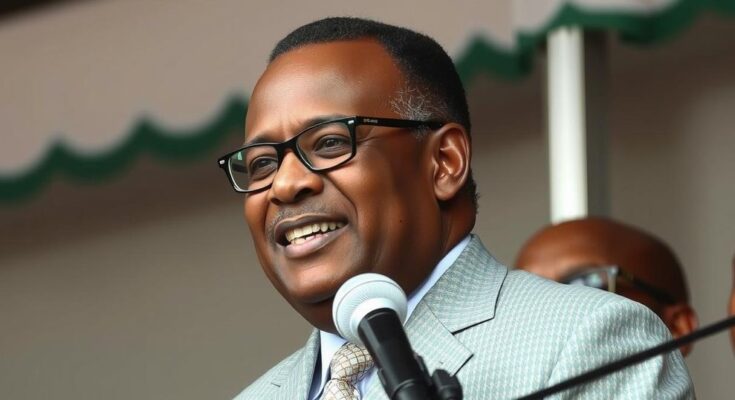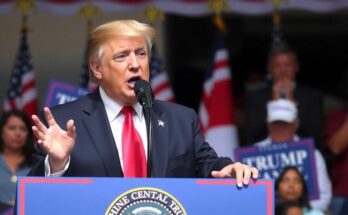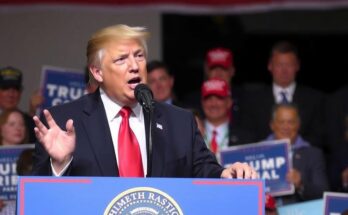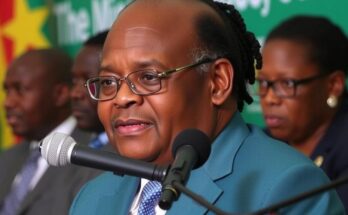John Dramani Mahama has been declared the winner of Ghana’s presidential election, receiving 56.5% of the votes amidst widespread discontent with the ruling government’s economic policies. His main opponent, Vice President Mahamudu Bawumia, conceded defeat, having garnered 41%. The election highlights a broader trend of opposition successes globally, reflecting public frustration with incumbents similarly facing economic crises.
In a significant political shift for Ghana, former president John Dramani Mahama has been officially declared the winner of the presidential election held recently. Mahama, who led from 2012 until 2017, received 56.5% of the votes, totaling approximately 6.3 million, amid voter frustration with the current administration’s economic management. His main competitor, Vice President Mahamudu Bawumia, conceded defeat, securing only 41% of the votes. The electoral commissioner announced a turnout rate of 60.9% across 267 constituencies. Although final vote counting continues in nine areas, the outcomes will not alter Mahama’s victory.
During his campaign, Mahama asserted that he would rejuvenate the nation’s economy, particularly courting the support of young voters seeking resolution to the economic challenges facing Ghana. Following Bawumia’s concession, jubilant celebrations erupted among Mahama’s supporters, adorned in the opposition party’s colors, reveling in the streets of the capital. This election occurred amid a notable cost-of-living crisis, perceived as a crucial test for the democratic system within a region grappling with instability from extremist activities and political coups.
Under the ruling New Patriotic Party, led by President Nana Akufo-Addo, the government struggled to manage economic difficulties, paving the way for Mahama’s return. Notably, the National Democratic Congress, Mahama’s party, also secured a parliamentary majority, highlighting a broader trend favoring opposition parties globally against incumbents.
Mahama’s return to presidency has been met with optimism among some citizens, who believe he possesses the skills necessary to rectify Ghana’s ailing economy. Political analysts suggest that the election was predominantly about the electorate expressing their dissatisfaction with the government’s performance, especially concerning economic management. This sentiment reflects a broader pattern seen in other nations experiencing shifts in political power, encapsulating public frustration with socioeconomic policies.
The recent presidential election in Ghana unfolded against a backdrop of significant economic challenges that have burdened the nation. Under the leadership of President Nana Akufo-Addo, the government faced criticism for its inability to effectively manage rising costs of living, prompting a voter backlash. John Dramani Mahama’s campaign focused on economic reform, appealing particularly to the younger demographic. This election is also notable within the context of West Africa’s political climate, where there is a growing trend of opposition victories against incumbents, reflecting increasing public discontent.
John Dramani Mahama’s return to the presidency marks a pivotal moment in Ghana’s political landscape, as citizens have voiced their frustrations over economic mismanagement. His election victory not only underscores a desire for change but also aligns with a global trend favoring opposition parties amidst economic hardship. Moving forward, Mahama is expected to address significant economic challenges, with the support of a parliamentary majority to implement his proposed reforms, engaging the hopes of a populace eager for positive change.
Original Source: www.clickondetroit.com




